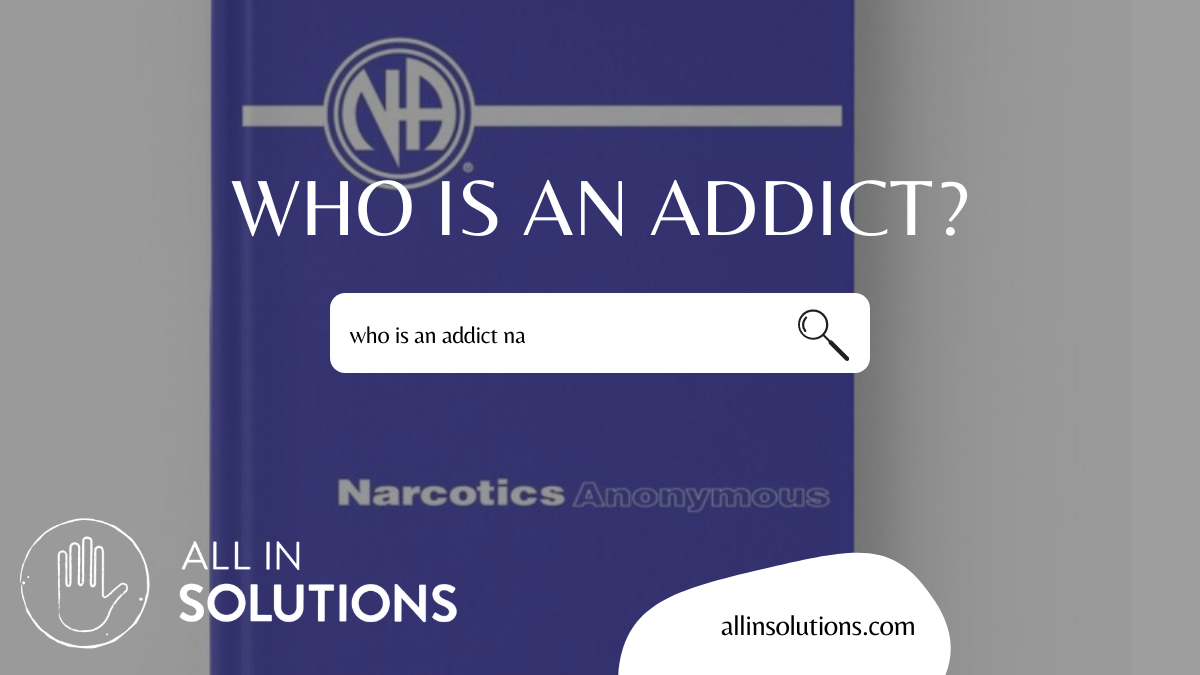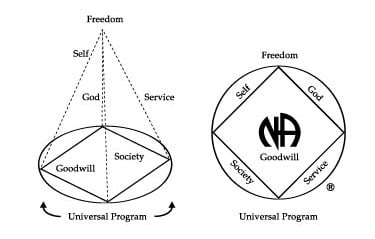Narcotics Anonymous: Who Is an Addict?
What does it mean to be addicted? What are the signs and symptoms of an addiction? What should you do if you are addicted? Are you putting your drugs before your responsibilities? Do you have a history of being in jails, rehab centers, or hospitals? Do you have trouble sleeping, eating, or running out of drugs? Do you question your sanity? Do you fear going without drugs? Do you feel guilty about your use?
Narcotics Anonymous
What is Narcotics Anonymous? Narcotics Anonymous is a fellowship of recovering drug addicts who use the 12 Traditions to guide them through their recovery. The 12 Traditions guide a program that works on many levels, including personal growth and self-acceptance. There are open meetings and closed meetings. An open meeting is open to everyone, while a closed meeting is private and for members only. Each meeting is different, and the tradition that guides it should be followed in both types of meetings.
The program has a unique approach to recovery. Anyone who is looking to stop using drugs can join. AA is open to all ages and sexual orientations, regardless of religion. Even those on drug replacement therapy are welcome to join. Members of AA meet every week in order to share experiences and support each other's recovery. By participating in meetings, members can begin the process of staying sober and reestablishing positive relationships with friends and family.
After a while in NA, Arne's relapse rate began to drop, and group friction decreased. She felt more secure and less fearful of using drugs again. She also felt that NA's principles were too rigid and focused on drug use. For this reason, she started her own 12-step program. However, her addiction was still a huge factor, and she found solace in other avenues.
The first chapter of the Narcotics Anonymous "Basic Text" lays out the answer to the question, "who is an addict". You can read who's an addict or download the who is an addict pamphlet pdf.
How do you know if you are addicted to something?
While the American Society of Addiction Medicine defines addiction as an abnormal, persistent brain condition, the signs of an addiction may be masked by the behavior of the addicted person. Addicts become obsessed with the substance or behavior, ignoring or denying other areas of their lives. Most of these signs are associated with a specific substance or behavior, and the intensity of these symptoms may depend on the severity of addiction.
Several genes can increase the risk of addiction. There are several genes that influence alcohol consumption, drug reliance, and morphine response. Some people have multiple gene variants that may be responsible for a genetic predisposition to addiction. However, genetic predisposition is not enough to guarantee an addictive behavior, and only contributes to 50% of all addictive behaviors. Fortunately, there are other ways to recognize a potential addict.
Physical symptoms of addiction may include bloodshot eyes, frequent nosebleeds, and bad breath. These symptoms are often accompanied by weight gain, shaking, and a change in social group. Some people may also have an unusually large number of friends. They may visit doctors more than once and look into other people's medicine cabinets. Additionally, they may take prescribed meds along with their substances of choice.

Definition of addiction
A definition of addiction is essential for understanding the disease of human beings. People become addicted to a substance because of the pleasurable and valuable experience it brings. The process that leads to the release of the craving remains pleasurable and valuable. This cycle can be referred to as the cravings-use-pleasure-rest cycle. People who have an addiction to alcohol or drugs experience the effects of the disease over time. In this article, we provide an overview of the new definition of addiction.
In a recent study, 52 scientific papers have identified five essential elements of the definition of addiction. These elements are: engagement, appetitive effects, compulsions, and loss of control. While the elements of an addiction are different from those of a compulsion, these five elements provide a heuristic basis for forward thinking. Although there are still debates about the elements of addiction, these five elements offer a reasonable understanding of the concept.
According to the definition of addiction, a person has an uncontrollable urge to use a certain substance or behavior. This behavior may result in psychological or physical harm, or even death. Addictions may also be caused by other activities, such as gambling, or by medications. They can even be a result of the misuse of prescription drugs. But despite these similarities, there are some fundamental differences between addiction and drug misuse. Addiction, by definition, is an underlying brain condition that reduces a person's ability to control their impulses.


